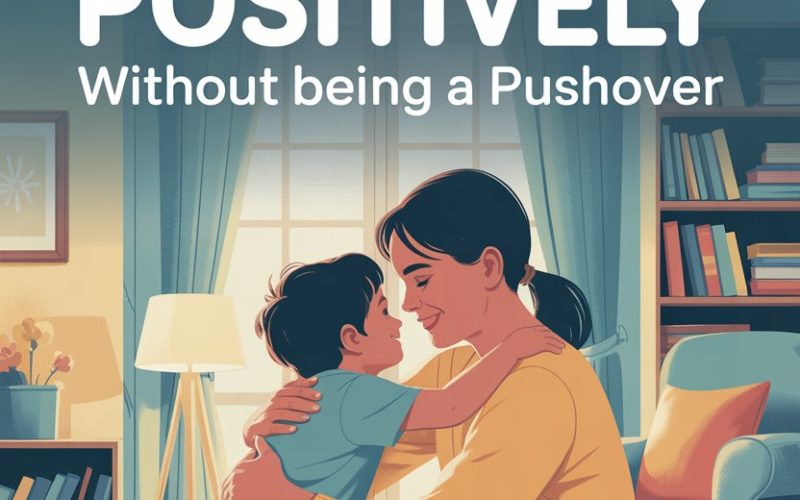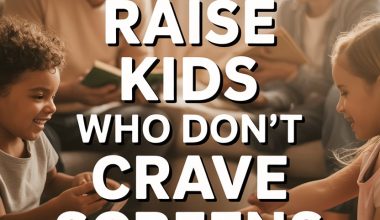Ever feel like you’re starring in an Oscar-worthy performance called “The Parent With No Backbone”? You want your child to flourish, but you’d prefer not to be steamrolled in the process.
If you’re spinning in circles between gentle encouragement and “because I said so,” take heart—there’s a middle path, and it doesn’t involve bribing anyone with biscuits.
Defining Positive Parenting (Without the Doormat Vibe)
Positive parenting’s been the buzzword at every playgroup and in the comments section of way too many parenting blogs. At its core, it’s about raising children with warmth, empathy, and clear expectations.
The trick: keeping your authority without turning into a shouty, mini-dictator or, on the flip side, a human vending machine for treats and screen time.
Dr. Laura Markham, a clinical psychologist and author, points out that positive parenting “isn’t about permissiveness; it’s about connection”—which means you can have rules, boundaries, and even consequences, so long as they’re delivered with kindness and respect.
Translation: You’re not running a cruise ship, but you’re not the captain of a pirate vessel, either.
Boundaries Are Loving, Not Mean
Think about your favourite teachers or coaches growing up. Bet they weren’t the ones who let you nap through class or skip every practice.
Turns out, children crave structure (even as they protest it with Oscar-level drama). Boundaries help them feel safe.
According to research highlighted by the Child Mind Institute, kids with consistent limits tend to have better self-control and feel more secure in their relationships.
Set boundaries with empathy and explain the “why” behind them.
“We stop screen time at 7 pm because your brain needs rest for school tomorrow.” Not “Because I said so and I like the remote more than you.”
Of course, you’ll get pushback. That’s not a sign you’re doing it wrong. It’s a sign your child is, well, a child.
Consistency: The Unsexy Secret to Authority
Ever threaten a consequence you knew you wouldn’t actually enforce? (“If you don’t put those trainers away, I’ll donate them to Goodwill!”)
Kids are master code-breakers. Inconsistent enforcement cracks your credibility.
Consistency means consequences stick, routines are predictable, and the rules don’t change just because you’re tired.
When children know what to expect, they’re less likely to test limits out of confusion—they’ll save their energy for the usual mischief.
If you’re run ragged, keep it simple. Pick your top three non-negotiables (maybe: no hitting, no calling people ‘poopyhead’, teeth brushed before bed), and focus your efforts there.
Even the best parents can’t enforce 47 house rules and come out smiling.
Empathy and Connection: Firm Doesn’t Mean Cold
Picture this: Your child is melting down over a broken biscuit. You’re thinking, “There are children in the world who would kill for a biscuit,” but your child’s feelings are real and enormous.
Acknowledge the feeling (“You’re so upset your biscuit broke. That’s hard.”) and hold the line (“We can’t glue biscuits back together, love, but I can sit with you until you feel better.”).
This approach, backed by research from the Gottman Institute, helps kids process big emotions without getting the message that tantrums = getting their way.
It’s not about letting your child run riot; it’s about showing them their emotions are valid, while your boundaries are steady as a brick wall.
Natural Consequences Do the Heavy Lifting
Helicoptering in with a lecture or swooping away every obstacle? Tempting, but it often teaches kids nothing except how to dodge responsibility.
Allow the world to do some of the parenting for you (within reason and safety). If your child refuses to wear a jumper, a chilly walk to the corner might teach more than fifteen reminders ever could.
Natural consequences are memorable teachers, and you won’t get labelled “mean mum” or “grumpy dad” for enforcing the laws of physics.
Say Yes to Autonomy—Within Reason
Ever met a three-year-old monarch? They exist, often ruling over households that offer endless choices.
But autonomy isn’t about saying yes to everything—it’s about letting your child make real decisions where it’s safe to do so.
“Do you want broccoli or carrots with your dinner?” empowers them, while “Would you like to eat dinner or paint the walls with it?” is a recipe for disaster.
According to research shared by Harvard’s Center on the Developing Child, giving children small, age-appropriate choices builds confidence and decision-making skills without inviting chaos.
Repair, Don’t Resign, After Slip-ups
You will lose your temper. You will say things you wish you could stuff back into your mouth with a spatula. Welcome to the club.
What matters is what you do after. Repair is a superpower in positive parenting.
Apologise when you get it wrong—not because you’re abdicating authority, but because you’re modelling humility and accountability. “I shouted earlier, and that wasn’t fair. You still need to tidy your things, but I’ll try to use a calmer voice.”
Children who see adults own their mistakes are less likely to expect perfection from themselves or others.
Praise That Means Something
Genuine praise is like a GPS for your child’s behaviour: “You worked really hard on your drawing,” or “You put your shoes away without being asked—brilliant!”
Effusive, empty compliments (“You’re the best child in the world!”) don’t guide future actions and sometimes set the bar uncomfortably high.
Focus on effort, persistence, and kindness. According to Carol Dweck’s work on growth mindset, praise that targets effort over innate ability builds resilience and a willingness to keep trying—even when things aren’t easy.
No Means No (And Doesn’t Need a TED Talk)
Every parent’s been trapped in the “But whyyyyyyy?” loop. Children are hardwired to hunt for loopholes.
A clear, calm “No” (without 47 paragraphs of justification) reassures your child that the adult in charge is, well, in charge.
That said, if “no” is your default answer to everything—prepare for mutiny. Save it for when it matters, and make it stick.
Sometimes, a simple “That’s not an option right now” (and then walking away) is more effective than an endless debate.
Positive Discipline Is Still Discipline
Positive discipline doesn’t mean the absence of consequences. It means consequences are respectful, related, and reasonable.
Time-outs, loss of privileges, or extra chores can work—if you keep your cool and make the connection between the action and the result clear.
Avoid shaming, lecturing, or punishments that are so over the top they lose all meaning (“You’re grounded until the next ice age!”).
Children learn best when the consequence fits the action—think: “You broke your brother’s toy, you need to help him fix it.”
The American Academy of Pediatrics suggests that discipline rooted in teaching, not in punishment, leads to better outcomes.
Self-Care Isn’t Selfish—It’s Survival
A burnt-out parent can’t show up with patience, consistency, or empathy. If you’re running on empty, even the best strategies will fall flat.
Even five minutes to breathe, a cuppa, or a WhatsApp whinge with a mate can reset your mood. The old saying is true: you cannot pour from an empty cup (and if you try, you’ll end up with tea stains all over your carpet).
When you look after your own needs, you teach your children that grown-ups are human, too. That’s a lesson worth passing on.
Staying Firm With Love (And a Little Sanity Intact)
Positive parenting doesn’t mean giving up your authority. It means leading with empathy, setting boundaries that make sense, and showing your child that love and limits can—and should—go hand in hand.
You’ll have days where you feel like Mary Poppins and others where you sound more like a foghorn. That’s parenting.
What matters is showing up, setting the weather, and keeping your sense of humour handy.
And if all else fails, there’s always tomorrow—a fresh start, with or without biscuits.




